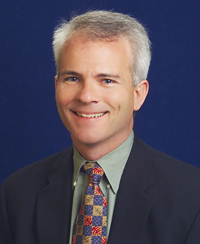 This week at its Education and Research Conference (ERC) conference in Chengdu, Sun Microsystems made two announcements of open source collaborations with higher education in China. CT asked Sun VP of Global Education Joe Hartley (left) for more information.
This week at its Education and Research Conference (ERC) conference in Chengdu, Sun Microsystems made two announcements of open source collaborations with higher education in China. CT asked Sun VP of Global Education Joe Hartley (left) for more information.
Campus Technology: Sun Microsystems has many programs focused on higher education worldwide. Could you give us a little background on Sun's interest in offering these programs?
Joe Hartley: Higher education is critically important to our success for many reasons. One is that universities become early adopters of technology and help us in the development process, which ultimately eases the adoption of a technology on Main Street once it's been proven and tested in academia. Another reason is that higher education is a source of innovation. We do a lot of collaborative research with universities around the world in testing new technological approaches or in basic research in computer science. And the third reason higher education is important to us is simply the students. Even though students aren't our customers, per se--they don't write checks to Sun Microsystems for our products--they are still critical to our future because they become the leading edge of developers.
Sun's overall business strategy, given that we're the number one supplier of open source technology to the world (according to the European Union), is that we monetize our open source investment at the point in time that technology gets deployed. And a technology doesn't get deployed until developers have played around with it and figured out whether and how they are going to go ahead and use that technology. So appealing to students and getting them familiar with our technology while they are still in college is going to increase the likelihood of them wanting to use our technology when they start their careers.
CT: That said, what are this week's announcements, and how are you collaborating with higher education in China?
Hartley: How we work with China is the same way we like to work with every country and every collection of academic institutions in the world. We have two good examples of that being announced at the ERC conferencein China this week.
One announcement relates to our work with SAFEA, the State Administration of Foreign Experts Affairs in China. We are working directly with the Chinese government to get students who are attending college in China--whether they come from other countries or are Chinese students involved in professional education--to have access to our training curriculum. This is an extension of what we have been doing for a number of years through the Sun Academic Initiative, where we make all of our training content available for free to universities and for student use. This is everything from computer-based training to instructor-led training materials. A private company would pay us to train them on our technology--that type of "learning services" is common in our business. So the announcement with SAFEA is in line with Sun's efforts to get curricula taught in colleges and universities to include our technology.
The second announcement is again related to students but is a more direct approach to them, and may also be more "fun" in a sense. It's a contest--students love contests--called the ChIPS project, the China Innovations Program for Students. Ten universities in China will each have three teams working for six months on projects that will be judged on the most creative uses of technologies like Project Wonderland, Project Darkstar, and Sun SPOTs, which have all had a lot of interest in the university community around the world for the past couple of years. The winning team will be flown to Sun's corporate headquarters where they will present their project and get to work with Sun researchers and technology for a week.
CT: Could you tell us more about the kinds of technologies they'll be using?
Hartley: Project Wonderland is the virtual worlds technology that is similar to Linden Labs' Second Life. The difference is that with Project Wonderland, you as an organization can create your own virtual world and federate with others you trust. That's one reason people in academia are so interested in Project Wonderland--more security within the virtual world environment. Darkstar is an open source gaming engine. Computer games have alot of computation on the back end, and Darkstar supports that. By allowing simulations and appealing to different learning styles, online gaming is becoming increasingly important. Sun SPOTs [open source, Java-based kits for building distributed sensor networks] are of very high interest among students, and what's so exciting about them is how they are being applied--for example, to gather environmental data to solve real-world problems. These three and a few other technologies including NetBeans and OpenSolaris are core to what the ChIPS project is all about.
CT: There are Chinese students already involved in Sun's Campus Ambassadors program. Are these new programs related to the Campus Ambassadors program or other existing programs for higher education?
Hartley: Then you're familiar with the Campus Ambassadors program that we've been doing for about three years to focus on and advocate open source. We've hired student interns at colleges and universities in nearly every time zone around the globe--about 500 students total. What we launched this past October as part of that program is the Open Source University Meetup (OSUM) student clubs. So far, more than 75,000 students have joined to participate in "real world" clubs on their campuses as well as virtually in some 1,400 clubs--social networking groups, if you will--that are all linked together. The students get access to unique content from Sun, but more importantly they interact with each other about various research projects and relevant topics. So the things that we're announcing this week in China are really extensions of these kinds of programs.